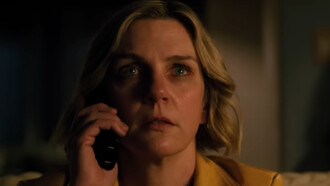How many times have we seen it before? Riot police, fully geared up with armour, batons, and shields, standing in tight formation, eyes locked on the protesters in front of them. Tension fills the air, and it’s only a matter of time before everything spirals into violence. The killing of George Floyd brought these scenes back into sharp focus, flooding news channels and social media with endless footage of police cracking down on demonstrators. Then came the Gaza war, igniting a fresh wave of protests that still continue, especially on university campuses in the U.S., where clashes between students and law enforcement have led to more disturbing incidents.
All of this has paved the way for the return of A.C.A.B. – All Cops Are Bastards (2012), now reborn as a Netflix TV series. From Carlo Bonini’s famous novel to Stefano Sollima’s 2012 film A.C.A.B. – All Cops Are Bastards, and now to the 2025 Netflix series A.C.A.B. La Serie (also titled Public Disorder), a six-episode series directed by Filippo Gravino, the story continues to evolve. This time, we dive deeper into the lives and minds of Italy’s riot police, exploring what happens behind the shields. Marco Giallini reprises his role as “Mazinga,” the same character he portrayed in the film, alongside Adriano Giannini and Valentina Bellè, joined by a cast of promising Italian actors.
Shot with a gritty neo-noir aesthetic, the series follows a group of riot police as they navigate the relentless pressure of their job, balancing personal struggles with the chaos of the streets. When a routine intervention takes a dark turn, tensions rise within the squad, forcing them to confront not only the violence outside but also the conflicts brewing among themselves.
The story itself isn’t entirely new or unique—Hollywood has offered many similar examples. However, what sets this series apart is the European approach, particularly the Italian one, which I’ve always found to be bolder, more courageous, and far darker than its Hollywood counterparts. After the success of Gomorra, a series by the same creators, A.C.A.B. La Serie stands out for its raw portrayal of these themes. This is where the real difference lies, especially when exploring such heavy subjects. Given the state of the world today, it’s always worth watching something like this, to see things from different angles. And that’s where the power of art truly shines.
In every case of police misconduct, especially when civilians are killed or when we hear chants and slogans targeting law enforcement at football stadiums, certain questions inevitably arise. What drives officers to act in such a way? Are they stripped of their humanity? How do they cope with the harm they've caused? What’s going through their minds? Public Disorder offers a glimpse into these questions, providing a small spark of answers that only the cops themselves truly know and experience.
From the very first moment, the intensity kicks in, leaving little room for dull moments. The squad is quickly thrown into action against activists from “No TAV” (a movement opposing the construction of a high-speed rail line between Lyon and Turin). When their leader suffers a severe injury during a clash, an unknown officer takes matters into his own hands, seeking revenge and brutally attacking a protester. The assault leaves the protester in a coma, sparking nationwide outrage and triggering an internal investigation into the squad.
The men and women behind the riot shields
Without getting too deep into the events of the series, what I took away from it is that this riot police squad was more than just a job. It was a shelter for those who were already struggling in life—a home, a family. Some officers even lived in the police dorms, highlighting how deeply tied they were to this world. Each of them carried their own struggles, family issues, personal trauma, deep-seated complexes, and a constant sense of loneliness, but they only had each other and always stood together, helping one another through it all.
Starting with Ivano "Mazinga" Valenti, played by Marco Giallini, a man carrying the weight of a dead wife and a broken relationship with his son, who refuses to speak to him, believing he abandoned them for his career in the police force. On top of that, he struggles with unspoken feelings for his colleague’s wife, torn between expressing them or staying loyal to his friend. All of this unfolds alongside the relentless pressure of his job and his responsibility to keep the squad united.
Then we have Marta Sarri, played by Valentina Bellè, a single mother trying to raise her daughter alone, keeping her away from her violent ex-husband, who is also a policeman. She is haunted by unspoken feelings and painful memories of his brutal attack, which left her with serious injuries, wounds she hides from her daughter. Torn between her duty and her morals, she navigates the complexities of her job while dealing with her personal struggles and the dynamics within her squad.
Next, we meet Salvatore, portrayed by Pierluigi Gigante, an ex-military officer who served in Afghanistan. The tragic events he witnessed there pushed him toward the riot police, but the scars of war left him with disorders, paranoia, loneliness, and trust issues. He lives in the police centre, filling the void by talking to an unknown girl over the phone, never meeting her but sensing that she might have financial intentions. Salvatore also shares a special bond with his colleague Marta, the single mother.
The series also touches on other serious subjects, such as the fate of officers who suffer life-altering injuries in the line of duty. Facing the prospect of spending the rest of their lives in a wheelchair, they grapple with depression and unbearable pain, only to be abandoned by the very system they dedicated their lives to. Left without support, they become entirely dependent on their spouses, adding another layer of struggle to their already broken reality.
Finally, we meet another compelling figure alongside other minor characters, Michele Nobili, played by Adriano Giannini. He takes over as the new squad leader after Fabrizio Nardi's retirement, facing difficulties in gaining the squad’s trust due to his different, more honest approach and a past that has some considering him a snitch. On top of that, he grapples with family struggles, raising a teenage daughter who was raped by her friend, torn between seeking justice on his own or putting his faith in the system.
Coming to the technical elements, the costumes, cinematography, and soundtrack create a seamless blend that pulls you into the world of the series. As you watch, you can feel how these elements work together alongside the powerful performances, with no weak links among the cast. This combination gives the show a rich, immersive feel, reinforcing its deep, gritty neo-noir tone. However, with only six episodes, the story feels somewhat compressed. Certain arcs could have been explored further, and some characters needed more time to develop. A longer season would have given the narrative more space to breathe, making its impact even stronger.
In the end, A.C.A.B. La Serie isn’t just a story—it’s a reflection of the world we live in. It reminds us that behind every uniform is a person shaped by their past, their choices, and the system they serve. The same questions remain everywhere. How far can duty push someone before they lose themselves? When the system fails both its enforcers and the people, who really pays the price?















